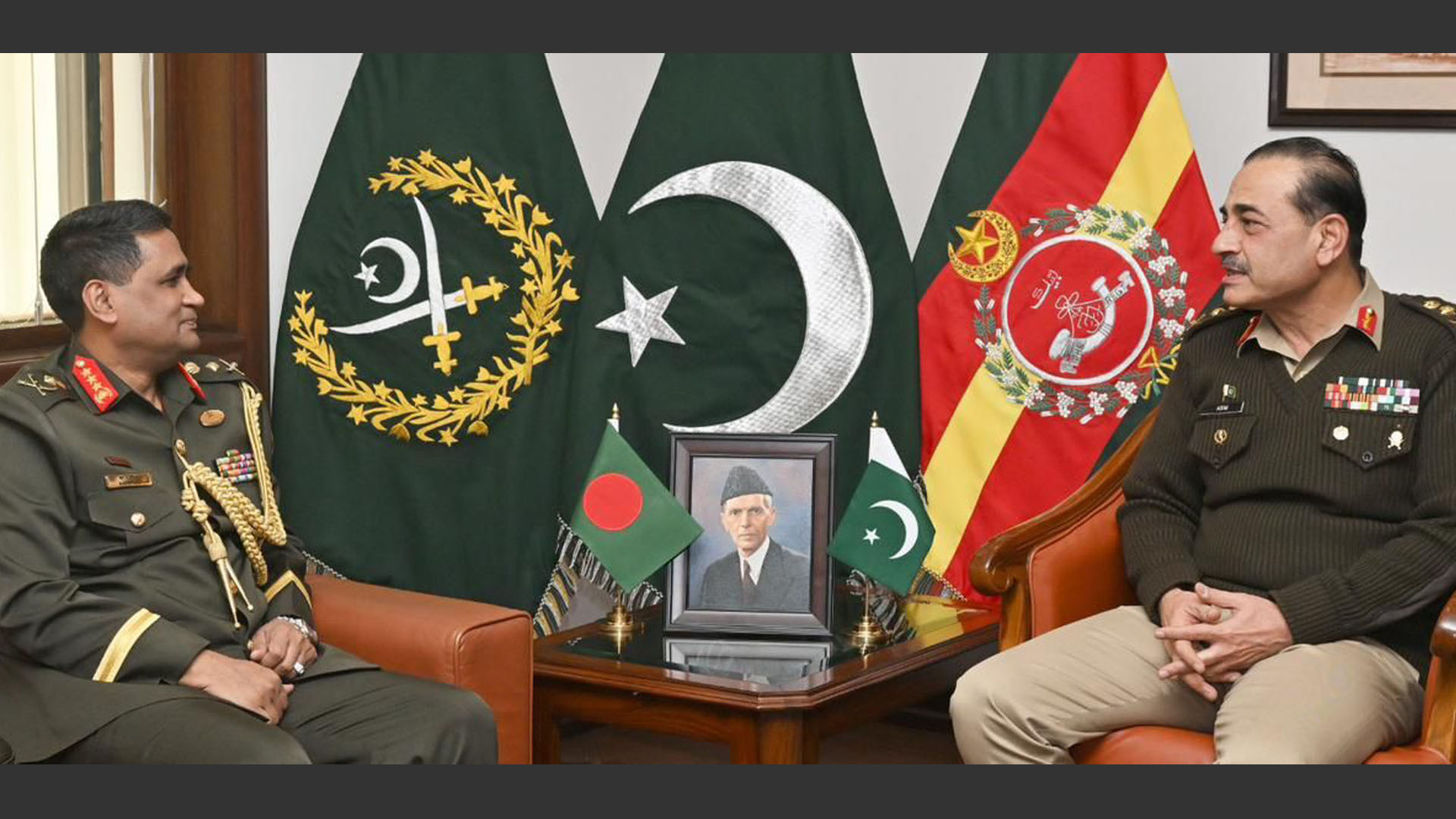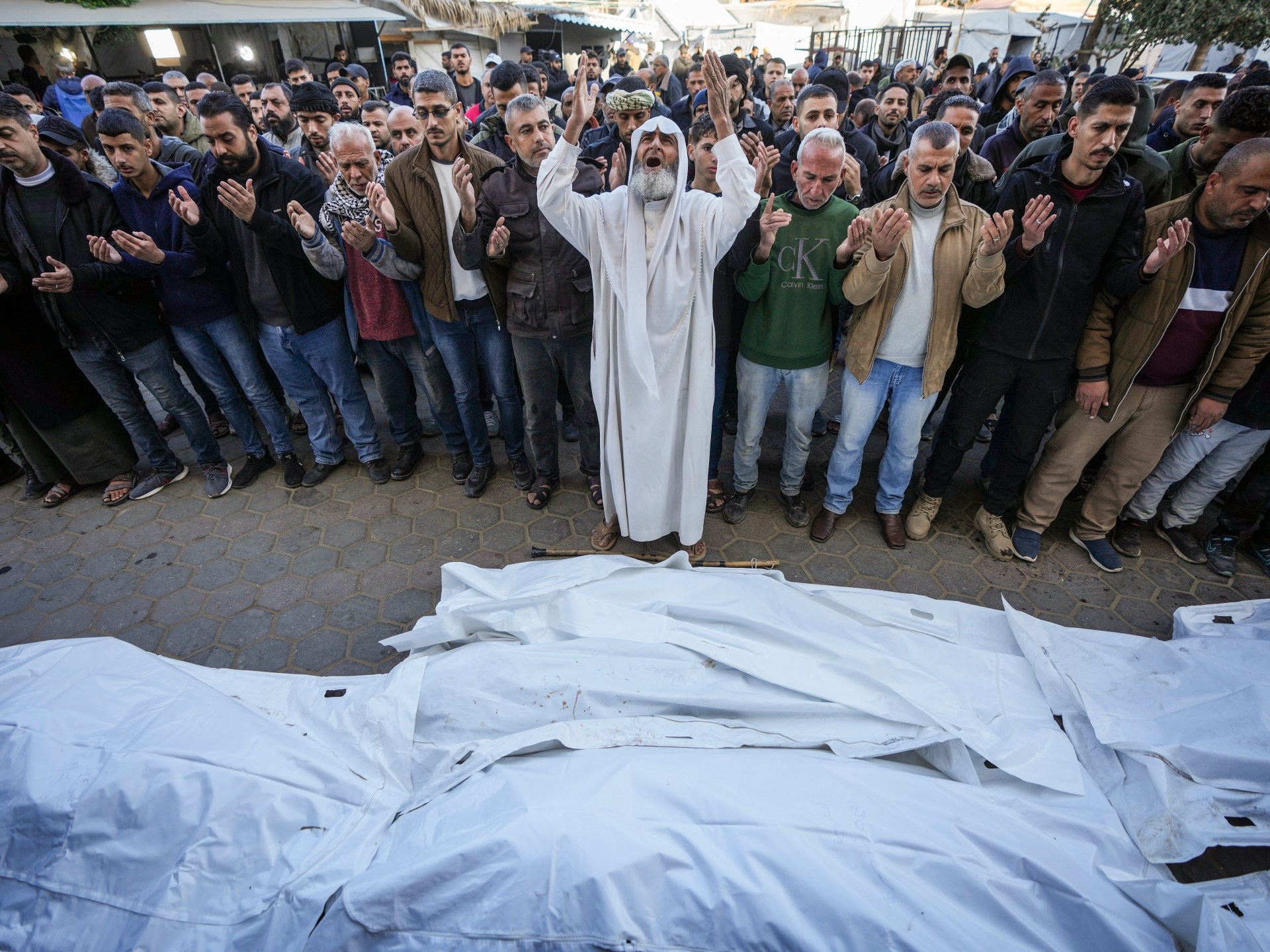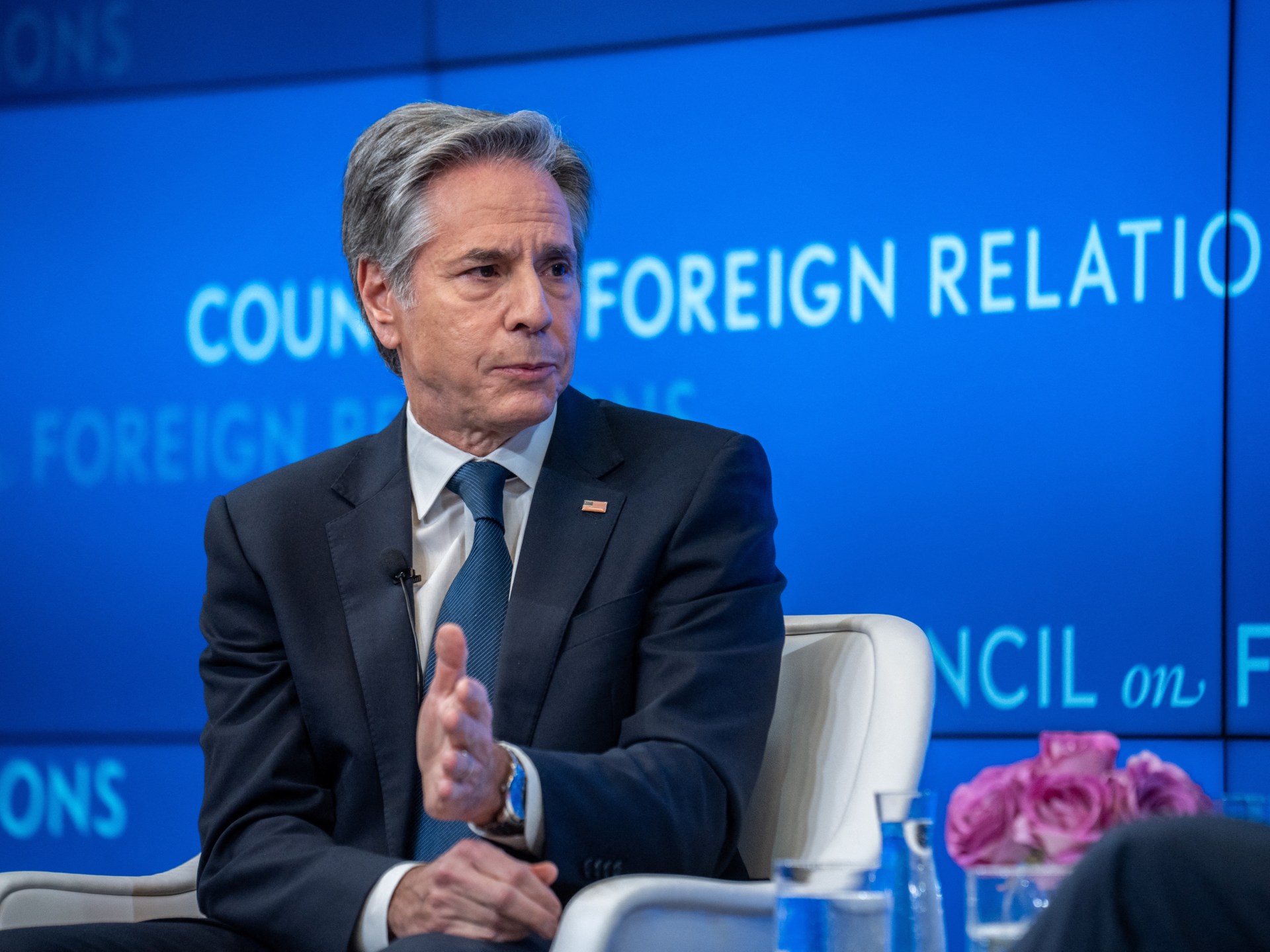Pakistan pulls closer to post-Hasina Bangladesh amid shared India concerns
 16 January 2025
16 January 2025


Islamabad, Pakistan – The flags of their nations planted on a table between them, Pakistan’s army chief, General Asim Munir, sat with Lieutenant General SM Kamrul Hassan, an officer in the Bangladesh military.
It was the high point of Hassan’s trip to the Pakistani capital, where he also met other senior Pakistani military officials. Commenting on Tuesday’s meeting between Munir and Hassan, the Pakistani military’s media wing described the countries as “brotherly nations”.
That’s not how Dhaka and Islamabad have viewed their relationship for much of the 54 years since Bangladesh broke away from Pakistan, winning independence after one of the 20th century’s bloodiest wars.
The tension in their ties only deepened during the nearly 16-year rule of Bangladeshi Prime Minister Sheikh Hasina, who was ousted from power in August after mass protests and forced to flee to neighbouring India, which backed her government.
But since Hasina’s departure, Pakistan and Bangladesh have edged closer to each other in an apparent reset at a time when politics in both countries have a general anti-India sentiment, overriding the historical animosity between Islamabad and Dhaka.
Advertisement
Munir and Hassan “underscored the importance of strengthening military ties and reaffirmed their commitment to insulating this partnership from any external disruptions”, the Pakistani military said. And their meeting was one in a series of high-level exchanges between the nations.
Pakistani Prime Minister Shehbaz Sharif met Muhammad Yunus, head of Bangladesh’s interim government, during an international summit in Egypt’s capital, Cairo, last month after the two also met in September on the sidelines of the United Nations General Assembly.
And Pakistan’s foreign minister, Ishaq Dar, is expected to visit Bangladesh next month, the first such trip since 2012, prompting analysts to suggest that the geopolitical ground in South Asia could be shifting.
Settling issues ‘once and for all’
The genesis of the historical animosity between Islamabad and Dhaka lies in Bangladesh’s war of liberation from Pakistan in 1971. Pakistan’s military and its allied militias fought Bengali rebels and massacred hundreds of thousands of people, according to independent estimates. Those estimates suggest that at least 200,000 women were raped.
Backed by the Indian army, Hasina’s father, Sheikh Mujibur Rahman, and his Awami League party led Bangladesh to independence. He became its founding president and earned himself the title of “Father of the Nation”.
While Pakistan accepted Bangladesh’s independence in 1974 under a tripartite agreement with India, unresolved issues between Islamabad and Dhaka persisted. They included the lack of a formal apology from Pakistan for its atrocities, the repatriation of Urdu-speaking people from Bangladesh who identify as Pakistanis and the division of pre-1971 assets between the two nations.
Advertisement
During his Cairo meeting with Sharif, Yunus urged Pakistan to resolve the longstanding matters.
“The issues have come up time and again. Let’s settle them once and for all for future generations,” Yunus told Sharif, according to Bangladesh’s state news agency.
Sharif replied that he would look into “outstanding issues”, the agency reported.
Changed dynamics
Ashraf Qureshi, a former Pakistani envoy to Bangladesh, told Al Jazeera that strained India-Bangladesh ties over New Delhi’s long support for Hasina’s “autocratic” government, may have prompted the new administration in Dhaka to recalibrate its moves.
Last month, Yunus’s interim government demanded that New Delhi extradite Hasina for a “judicial process”. Hasina is accused of overseeing a series of human rights abuses during her rule, including during the crackdown on protesters in the weeks leading up to her ouster. The Indian government has not reacted to the request yet.
India, for its part, has repeatedly expressed concerns over the fate of Hindus in Bangladesh, who constitute about 8 percent of Bangladesh’s 170 million people and have traditionally been strong supporters of the Awami League. New Delhi has suggested they have been persecuted.
Bangladeshi authorities have strongly rejected the allegation, adding that disinformation from Indian media has fuelled the tension between the neighbours.
“Certainly, if you are Bangladesh, you would weigh your options, and with the state of their relationship with India, Pakistan comes into the equation, leading to better ties than before,” Qureshi said.
Advertisement
Qureshi said India too is faced with a dilemma over Hasina. “India cannot just hand Hasina over as it would signal that India is happy to abandon anybody who supported them,” he said.
But Walter Ladwig, senior lecturer at King’s College London, cautioned against overstating the significance of recent diplomatic and military exchanges between Pakistan and Bangladesh.
“I think this is a notable event given where bilateral relations have been for the past 15 years, but at the same time, I would be careful about reading too much into it. The two countries still have historical tensions and divergent interests,” Ladwig told Al Jazeera.
Qureshi too cautioned that the region’s geographical realities mean that Bangladesh cannot afford to adopt an anti-India stance.
“They share a long border with them. Their water source originates in India. At most, they may take a slightly independent policy stance compared with Sheikh Hasina’s time, but they would not take an anti-India stance,” he said.
Ladwig agreed.
“A range of political actors inside Bangladesh have been forthright in recognising the realities of geography and economics. These are trends worth watching, but they need to be accompanied by a range of substantial policy changes before we start reassessing regional geopolitics,” he said.
India’s engagement with Taliban
Bangladesh’s growing relationship with Pakistan also comes amid broader geopolitical moves reshaping South Asia, including India’s dramatic engagement with Afghanistan’s Taliban rulers in recent months.
Advertisement
Even though New Delhi is yet to formally recognise the Taliban government, top Indian officials have recently met their Afghan counterparts. Last week, Indian Foreign Secretary Vikram Misri met acting Afghan Foreign Minister Amir Khan Muttaqi in Dubai in the highest-profile public engagement between New Delhi and the Taliban.
India’s diplomatic engagements with the Taliban have irked Pakistan, which for decades patronised the armed group and offered refuge to its leaders as they fought against United States-led forces in the country.
But Islamabad’s leverage over the Taliban was severely weakened last year when Pakistan saw a spike in deadly attacks, many of them blamed on Tehreek-e-Taliban Pakistan (TTP), also known as the Pakistani Taliban, which shares an ideological affinity with the Afghan Taliban.
Pakistan alleges TTP fighters are provided shelter and training on Afghan soil – a charge the Taliban denies. The tensions between Islamabad and Kabul peaked last month when the two countries exchanged air strikes.
Burhanul Islam, another former Pakistani diplomat, said the improvement in ties between Pakistan and Bangladesh could be seen as “a new beginning” after Hasina’s ouster.
“Perhaps Bangladesh is seeking military support and a security umbrella from Pakistan. I am hopeful that the two countries are now moving in the right direction and their military leadership wants to improve relations with Pakistan,” Islam told Al Jazeera.
‘Economic opening’
Ladwig thinks that despite recent stumbles due to the mass uprising last summer, Bangladesh’s economy has been steadily growing – a factor that may be pushing Islamabad towards better ties.
Advertisement
“Pakistan needs all the economic partners it can get, which is yet another incentive for Islamabad to try to enhance ties,” he said.
With a growth rate of 6 percent since 2021, Bangladesh is one of South Asia’s fastest growing economies. Pakistan, on the other hand, lags behind considerably, managing growth of only 2.5 percent last year.
Trade volumes between the two countries remain lopsided. Pakistan’s exports to Bangladesh were valued at $661m while imports stood at $57m, according to official figures. Bilateral trade stood at more than $700m last year.
Ladwig believes trade is an area that could see major changes in the coming days.
“After a period during which there were no direct flights between the two capitals, diplomatic engagement was minimal and people faced difficulties gaining visas, any relaxation will be notable,” he said.
“I think the Pakistani government senses an opening and an opportunity to improve ties.”
Related News

Photos: Escalating Israeli attacks on Gaza kill 50 Palestinians in 24 hours

World’s oldest person dies in Japan aged 116

Trump sentenced in New York hush-money case days before taking office

